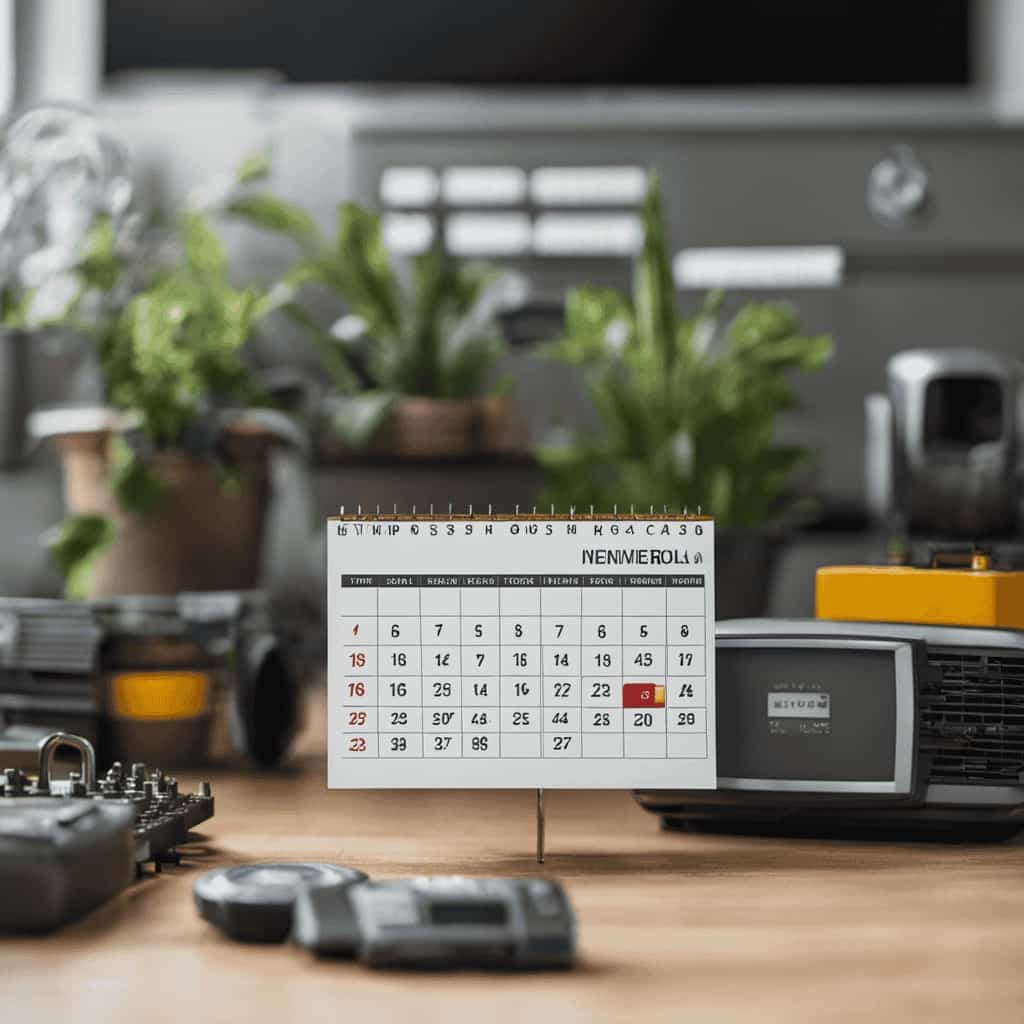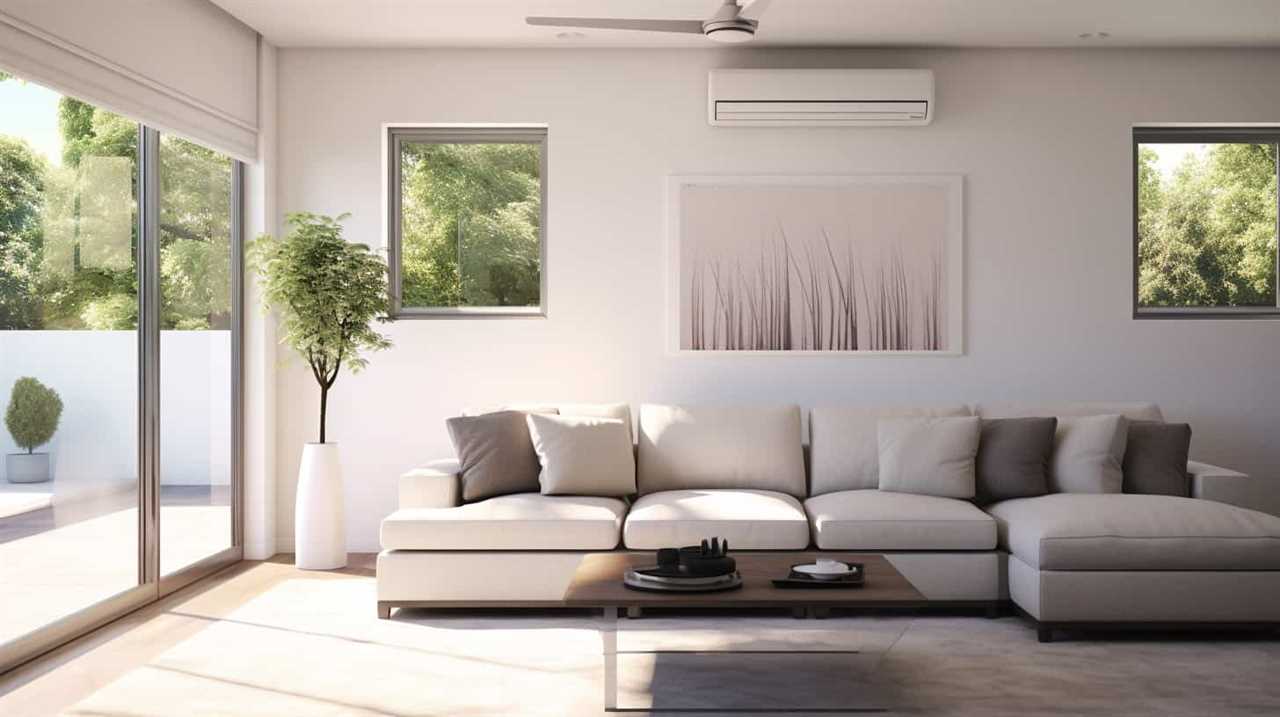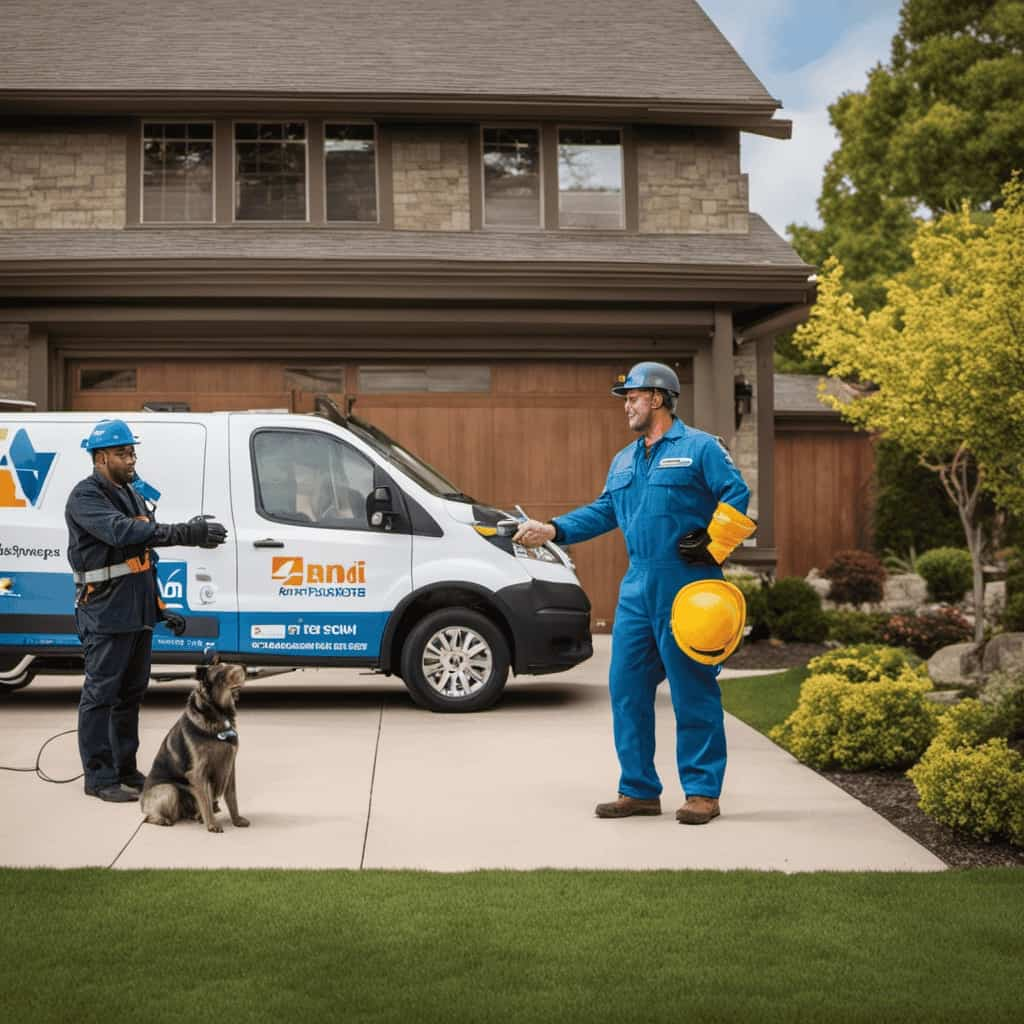Are you fed up with expensive energy bills and ineffective heating? You’re in luck! We have all the solutions to your heat pump energy saving inquiries.
In this article, we will explore the basics of heat pump efficiency, discuss key factors that affect energy conservation, and provide advanced techniques to save on energy costs.
Don’t fall for common misconceptions – learn how to maximize your heat pump’s energy conservation potential.
Get ready to unveil the secrets to a more energy-efficient home!

Key Takeaways
- Regular maintenance is crucial for optimal heat pump efficiency, including cleaning or replacing filters, checking refrigerant levels, and inspecting electrical connections.
- Proper insulation and sealing are important for energy conservation in heat pumps.
- Advanced features like variable-speed compressors and smart thermostat technology can improve efficiency.
- Heat pumps are still more energy-efficient than traditional systems, and modern technology has significantly improved their performance.
Understanding the Basics of Heat Pump Energy Efficiency
Let’s delve into the basics of heat pump energy efficiency to gain a better understanding of how it works. Regular maintenance is crucial for ensuring optimal heat pump efficiency. By scheduling regular maintenance, you can identify and address any issues that may be affecting the performance of your heat pump. This includes cleaning or replacing filters, checking refrigerant levels, and inspecting electrical connections.
Additionally, the impact of insulation on heat pump energy conservation can’t be underestimated. Proper insulation helps to create a barrier that prevents heat loss or gain, allowing the heat pump to operate more efficiently. Insulating your home’s walls, floors, and attic can significantly improve the energy efficiency of your heat pump system.
With regular maintenance and proper insulation, you can maximize the energy efficiency of your heat pump and reduce your energy consumption.
Now, let’s explore the key factors that affect heat pump energy conservation.

Key Factors Affecting Heat Pump Energy Conservation
There are five key factors that affect heat pump energy conservation.
One important factor is heat pump maintenance. Regular maintenance, such as cleaning or replacing filters and ensuring proper airflow, can help the heat pump operate efficiently.
Another factor is using energy-saving thermostat settings. Setting the thermostat to a moderate temperature can reduce energy consumption.
Additionally, proper insulation and sealing of the home can prevent air leaks, reducing the workload on the heat pump.

The size of the heat pump is also crucial; an undersized unit may struggle to heat or cool the space efficiently.
Finally, the climate in which the heat pump operates affects its energy conservation. Warmer climates generally require more cooling, while colder climates need more heating, impacting energy usage.
Exploring Advanced Techniques for Heat Pump Energy Savings
We can achieve significant heat pump energy savings by implementing advanced techniques such as optimizing airflow and utilizing smart thermostat technology.
Advanced heat pump technology includes features like variable speed compressors and two-stage operation, which allow for more precise control over the heating and cooling process.

By optimizing airflow, we can ensure that the heat pump is operating at its maximum efficiency. This can be achieved by keeping the outdoor unit clear of debris, regularly cleaning or replacing air filters, and ensuring that the ductwork is properly sealed and insulated.
Smart thermostat technology allows us to program and control the heat pump remotely, ensuring that it’s only running when needed and at the most efficient temperature settings.
Common Misconceptions About Heat Pump Energy Efficiency
One common misconception about heat pump energy efficiency is that they aren’t as effective in colder climates. However, this isn’t entirely true. While it’s true that heat pumps may struggle to extract heat from extremely cold air, modern heat pump technology has advanced significantly, making them more efficient even in colder climates.
Here are four important facts to debunk this misconception:

-
Heat pump technology has improved: Modern heat pumps use advanced technology, such as variable-speed compressors and smart defrost systems, which allow them to operate efficiently in colder temperatures.
-
Dual fuel systems: In colder climates, heat pump systems can be paired with a gas furnace to provide efficient heating when temperatures drop significantly.
-
Supplemental heating: Heat pumps can be equipped with supplemental heating elements to provide additional warmth during extremely cold weather.
-
Energy savings: Despite the misconception, heat pumps are still more energy-efficient than traditional heating systems, resulting in lower energy consumption and reduced utility bills.

Tips and Tricks for Maximizing Heat Pump Energy Conservation
To maximize heat pump energy conservation, we recommend regularly cleaning and replacing air filters, as well as scheduling routine maintenance with a qualified technician. By keeping the air filters clean, you ensure that the heat pump operates efficiently and doesn’t strain to draw in air. Routine maintenance by a professional technician helps identify and address any issues before they become major problems, ensuring optimal performance and energy efficiency.
In addition to maintenance, adjusting your programmable thermostat settings can also help maximize energy conservation. By setting the temperature lower when you’re away or asleep, you can reduce the workload on your heat pump and save energy. Use the table below as a guide for setting your thermostat:
| Time of day | Temperature setting |
|---|---|
| Morning | 68°F |
| Daytime | 70°F |
| Evening | 68°F |
| Night | 65°F |
Following these tips and tricks will not only help you save energy but also extend the lifespan of your heat pump.
Frequently Asked Questions
How Often Should I Schedule Maintenance for My Heat Pump to Ensure Optimal Energy Efficiency?
We recommend scheduling maintenance for your heat pump regularly to ensure optimal energy efficiency. By conducting routine inspections and tune-ups, you can identify and address any issues that may be impacting its performance and efficiency.

Can I Use a Heat Pump in Extremely Cold Climates, or Is It Only Suitable for Moderate Temperatures?
In extremely cold climates, heat pumps may not perform as efficiently as in moderate temperatures. Traditional heating systems may be more suitable for extreme cold.
Are There Any Government Incentives or Rebates Available for Installing a Heat Pump?
Yes, there are government incentives and rebates available for heat pump installation. These programs help offset the cost and encourage energy-efficient choices. You may be eligible for financial assistance, so be sure to check with your local government or utility company.
What Is the Average Lifespan of a Heat Pump, and How Does This Affect Its Energy Efficiency?
The average lifespan of a heat pump greatly influences its energy efficiency. As it ages, its efficiency may decline, resulting in higher energy consumption. So, it’s essential to consider longevity when evaluating a heat pump’s energy-saving potential.
Can I Use a Heat Pump in Combination With Other Heating or Cooling Systems to Further Enhance Energy Conservation?
Yes, you can use a heat pump in combination with other heating or cooling systems to enhance energy conservation. Integrating a heat pump can improve efficiency and provide additional benefits for your home.

Conclusion
In conclusion, heat pump energy conservation is a vital aspect of reducing our carbon footprint and saving on energy costs. By understanding the basics and implementing advanced techniques, we can maximize energy efficiency.
Don’t fall for common misconceptions, and instead focus on tips and tricks to make the most of your heat pump.
With a little effort, we can achieve energy savings that are out of this world!









